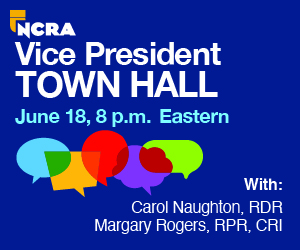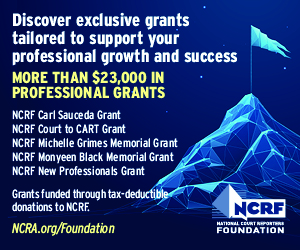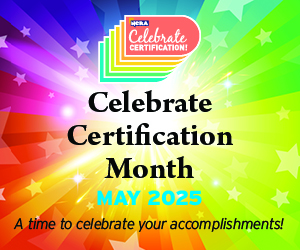According to Kory Stamper, associate editor at Merriam-Webster, dictionaries are not the guardians of the language; they’re much more like mirrors that reflect and record the language as it’s used historically and currently. This was the overall theme of the “Ask a lexicographer” session at the American Copy Editors Society conference in March.
Besides Stamper, the other panelists were Emily Brewster, also associate editor at Merriam-Webster; Ben Zimmer, executive editor of Vocabulary.com and the Visual Thesaurus, as well as the language columnist for The Wall Street Journal; Katherine Connor Martin, head of U.S. dictionaries at Oxford University Press; and Steve Kleinedler, executive editor for the reference group at Houghton Mifflin Harcourt, which publishes the American Heritage Dictionary of the English Language.
Lexicographers, the proper term for an editor of a dictionary, rely on a corpus — a curated collection of writings, conversations, speeches, etc. — to determine whether a word is being used commonly enough to enter the dictionary or if the spelling or definition is changing. Each corpus is slightly different and not every dictionary uses the same corpus (which accounts for some of the differences between dictionaries, such as whether the word for electronic mail is spelled email or e-mail). The Oxford English Corpus, for example, has 2.5 billion words in it, but the GloWbE Corpus at Brigham Young University (the full title is Corpus of Global Web-based English, and it’s free) has 1.9 billion words. Even though the Oxford English Dictionary (along with its other titles, like the New Oxford American Dictionary or the Canadian Oxford Dictionary) uses its own corpus and word catalog, it will also draw on other corpora (the plural term) for a more thorough body of evidence. The Oxford English Dictionary also employs human readers to look for words that are being used in new and interesting ways.
Because a corpus draws on written English, how words are used and spelled in written prose (either print or electronic) becomes the basis of current English. And this covers all kinds of written English, from newspapers to academic articles, from blog posts to song lyrics, and everything in between. Anyone can make up a word, but unless editors allow that word into published writing often enough, it won’t be added to the lexicon. Still, a corpus allows a lexicographer to see the difference between what English speakers say is correct versus what they’re actually doing in writing.
Lexicographers aren’t working alone in this process. Brewster, who is in charge of new words at Merriam-Webster, explained that when she wants to suggest a word to be added to the dictionary, she has to find enough evidence to support her claim that it is likely to continue to be used and that it’s not simply trendy. In developing a well-researched case, the proposed definition will likely be tweaked by several editors in the company. Merriam-Webster then has a director of definitions who says yes or no to the proposed new word. The American Heritage Dictionary has a panel of subject experts.
For example, one current question is if or when lexicographers will include they in the dictionary as singular as well as plural. This issue raises a bit of a linguistic Catch-22, because, according to the panel, editors have “hindered” singular they from entering the dictionary by revising text that uses singular they. However, editors have traditionally pointed to the dictionary as the authoritative resource. Furthermore, Stamper explained that singular they has been in English usage since the 1300s, and Brewster then pointed out that you used to only be plural but gradually became used as singular as well when other singular forms (such as thee) fell out of common use.
But, as Connor Martin pointed out, “lexicography is an art, not a science.” Some choices for spelling are cultural; the British, for example, tend to prefer a hyphenated or open compound whereas Americans have been closing them. Some usages are also so stigmatized that they are not likely to change. The word irregardless provokes strong enough feelings that lexicographers are not likely to adjust the definition to reflect how people usually use it. However, Kleinedler pointed out that “words that irritate you are not the same thing as words that aren’t real.” This explains why words like booty call (which Brewster admitted to entering into Merriam-Webster) end up in the dictionary even though the addition was likely met with eye-rolling and head-shaking from some people. The panelists also pointed out that the nature of the Internet means that certain words that may seem trendy could be added. Since these words are likely to live on in blog posts and other more informal electronic publishing, people will continue to look up their definitions.
Savvy dictionary users may notice changes between editions of the same dictionary, and because language is continually changing, there may even be variations between printings of the same edition. The panelists suggested using the online versions of these dictionaries for the most current definitions, spellings, etc., as it’s much easier to make a change online than it is in a printed book. There are also differences among dictionaries in how multiple definitions for the same word are organized, although this largely depends on the particular dictionary’s primary purpose. Merriam-Webster, for example, traditionally organizes definitions chronologically, so the first definition is the oldest, but that is changing (and inconsistently, Stamper said). The English learner versions of Merriam-Webster, however, order definitions by commonality because that’s what English language learners need to know most. And finally, when there are multiple spellings for the same word, lexicographers look at the evidence to determine whether to use “or” (which means either spelling is fine) or “also” (which means the first choice is preferred) in the entry.
It’s important to note that the panel was hesitant to ever describe a word or usage as “correct” or “incorrect.” Perhaps this is because lexicographers are more like interested observers of the language rather than rule-makers, even if they admit that one of the purposes of a dictionary is to make a judgment call on whether to describe words and definitions as more formal or informal.
English is changing all the time, which can be frustrating to keep up with for some, but is also exciting. Lexicographers, for one, are happy to see change in the language because that keeps them employed. But more importantly, as Connor Martin pointed out, “The moment English stops changing, it’s dead — it’s Latin.”
Megan Rogers is NCRA’s Communications Assurance Specialist. She can be reached at mrogers@ncra.org.



